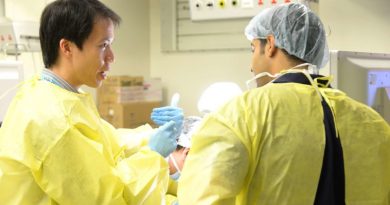Feel Fine After An Accident? Why You Should Still Visit A Doctor
Accidents are unpredictable occurrences that often come with immediate medical concerns. Whether it’s a minor fender bender or a more serious collision, the aftermath can leave those involved shaken, confused, and sometimes, seriously injured. However, what’s concerning is that not all injuries present themselves right away.
It’s not uncommon for people to walk away from an accident feeling perfectly fine, only to discover days, weeks, or even months later that they’ve sustained significant injuries. As a Tucson injury lawyer frequently witnesses, late identification of these injuries often complicates both the treatment and legal processes involved. In this article, we’ll discuss the importance of medical checkups after accidents even when you feel fine.
Understanding hidden injuries
An accident, regardless of its magnitude, triggers your body’s “fight or flight” response, resulting in a surge of adrenaline. This hormone, also known as epinephrine, helps your body to manage stressful situations by increasing heart rate, blood pressure, and energy supplies.
One notable effect of adrenaline is its ability to dampen the sensation of pain, enabling you to handle the immediate demands of the situation. However, this very benefit can mask potential injuries, making you feel unharmed in the moments and hours after an accident.
While some injuries like fractures or lacerations are immediately apparent, others can stay hidden under the adrenaline’s effect. These ‘invisible’ injuries might include soft tissue injuries, internal bleeding, or concussions, which often don’t present clear symptoms immediately.
For instance, whiplash, a common injury in car accidents, might not show symptoms until several days post-incident. Other potentially severe but less immediately apparent injuries include traumatic brain injuries (TBIs) and spinal cord damage, both of which could have long-term impacts on one’s health.
Take preventative measures
Preventative healthcare plays a vital role in maintaining our overall well-being. It involves detecting health issues early, before they become severe or even life-threatening, which is why regular check-ups and screenings are often emphasized by healthcare professionals.
After an accident, preventative care is just as, if not more, important. Given the potential for hidden injuries, seeking medical attention promptly allows for early diagnosis and treatment, which can help prevent long-term or permanent damage.
Studies consistently show that early detection of injuries can lead to better health outcomes. For instance, early intervention in cases of traumatic brain injuries can drastically reduce the severity of the damage and improve the prognosis.
When to seek medical attention
Ideally, you should seek medical attention as soon as possible after an accident, preferably within 24 to 72 hours, even if you feel fine.
Although you might feel fine immediately after an accident, you should still monitor your health closely in the subsequent days and weeks. Be alert to signs such as persistent headaches, dizziness, numbness, or any pain in your neck, back, or any other parts of your body.
Changes in personality or behavior, difficulties with concentration or memory, or any other unusual symptoms could indicate a traumatic brain injury or other neurological problems. Symptoms such as abdominal pain or deep bruising might suggest internal injuries.




